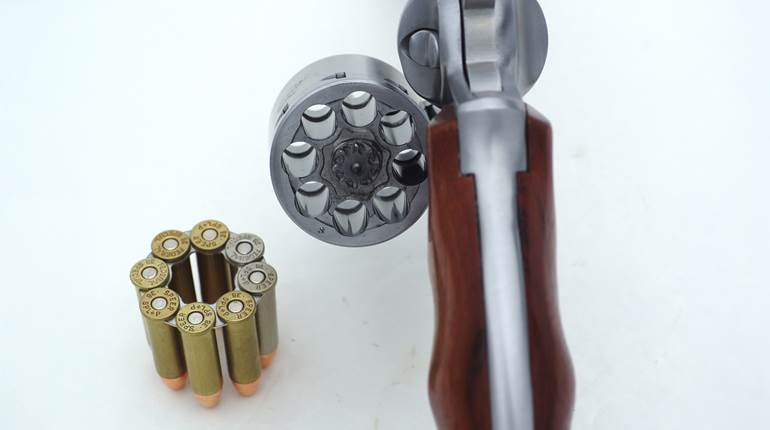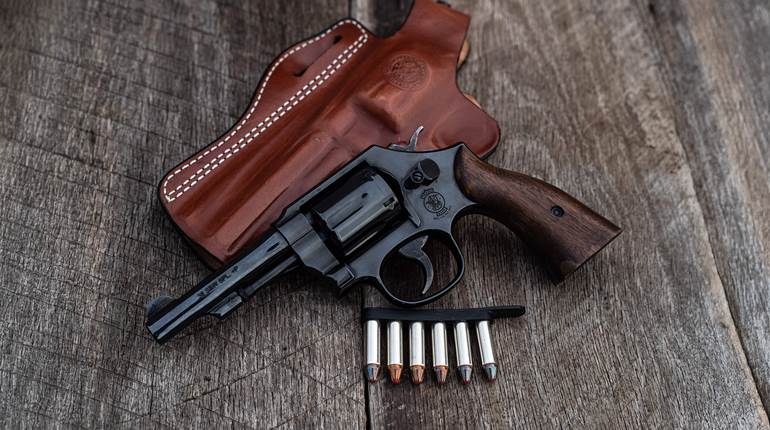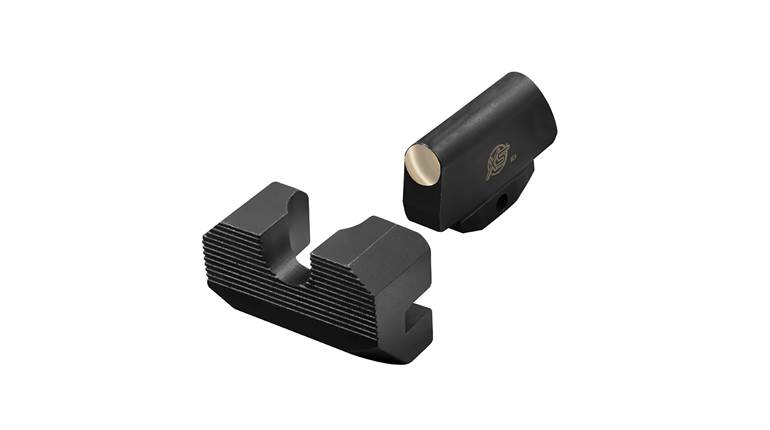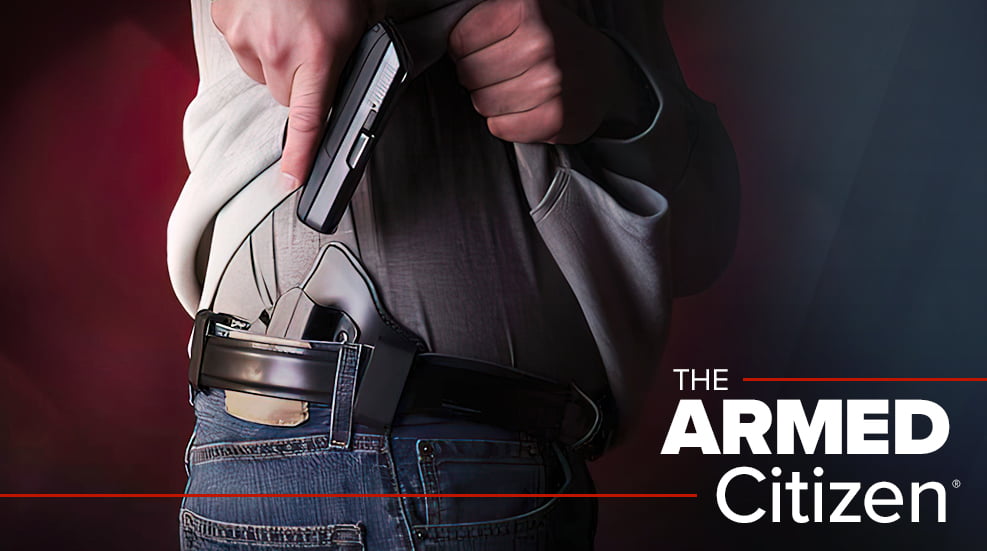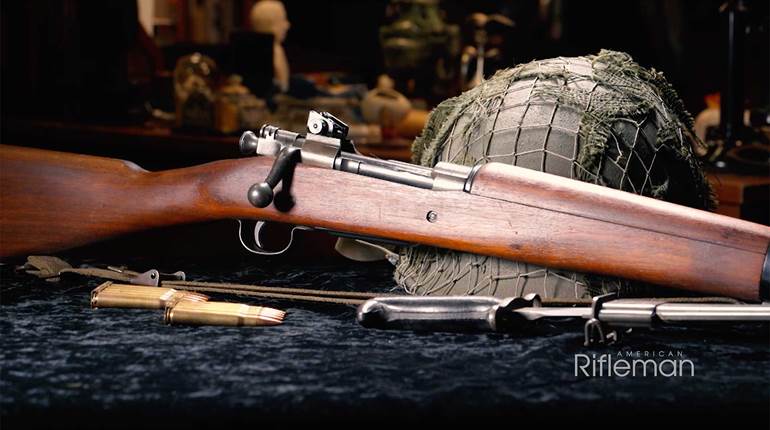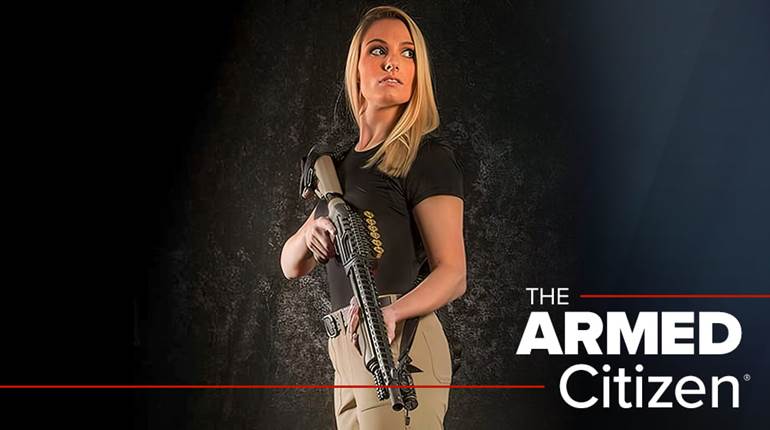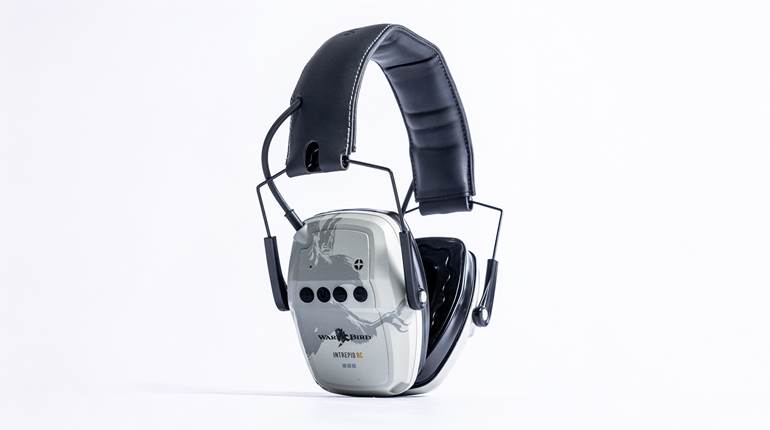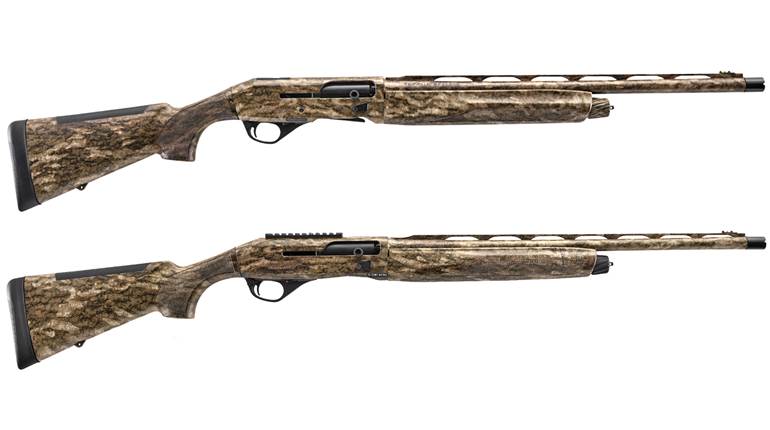
There is no arguing that, when it comes to handguns, small is in. And there is no handgun that has been filling that role longer than the Derringer. First popularized by Henry Deringer in the early 19th century, and much copied since, in modern times the form is perhaps best represented by Bond Arms out of Granbury, Texas. The Bond Arms Ranger II exemplifies the later two-barrel style, and this single-action, break-open pistol is chambered to fire 2 1/2- or 3-inch .410-bore shotshells, as well as .45 Colt and .45 Schofield.
The gun features stainless steel construction with a brushed finish, is CNC-machined and is built entirely in the United States. Weighing more than 23 ounces, this handgun feels solid enough to handle a variety of loads, and thanks to the patented interchangeable barrel system, it can. All Bond Arms derringers will accept any one of the company’s 16 different barrels, available in 22 cartridge options, and new barrels can be shipped directly to the consumer.
Changing barrels requires only the action to be opened and the removal of the single hinge screw with a 1/8-inch Allen wrench. Replacement barrels come with sights and a spring-loaded extractor pre-installed. The extractor can also be manually pushed using a thumb extension to help remove rounds that may become stuck; however, the chambers are well-honed to aid smooth extraction. The blade front sight and notched rear sight are integral with the barrel, which starts as a solid piece of steel before the two barrel openings are bored out and rifled. Featuring 3-inch chambers, the Ranger II has rifling in only the last 1½ inches of its total length.
Bond Arms Derringers have several mechanical safeties to ensure their proper use and to protect against an unintentional discharge. The first is the rebounding hammer that acts as a half-cock position and prevents forward movement of the hammer. This also acts as a hammer drop safety so it will not fire if dropped on the hammer on top of a chambered round. The hammer will engage the firing pins only if the trigger is completely depressed.
The twin firing pins are also auto-retracting to help prevent accidental discharges when loading. A cross-bolt safety is also included above the grip. It completely prevents any hammer contact with the firing pins when activated. The cross-bolt safety can also be locked in the “on” position with an Allen wrench on a screw on the breech face. An internal locking device, located next to the trigger, locks the action and helps prevent unauthorized use. Many may also appreciate the inclusion of a trigger guard that is removable for those preferring a more traditional outline.
The grip design for the Ranger II adds a finger extension that provides a more positive grip, and the grip swell fills the palm comfortably. Also unique to the Ranger II is the smooth, black-wood-laminated construction with matching brushed, stainless steel Texas or Lawman star inlays gracing each side of the grip. The star matches one found on the attractive driving holster, a sturdy, black-molded leather cross-draw affair with distinct white stitching, a quick-release thumb break and a clever hook-and-loop attachment system that fits up to 1¾-inch belts.
Operation is straightforward and easily mastered. Simply rotate the frame-mounted, spring-loaded rapid reload lever downward to release the hinged barrel assembly, then rotate the barrel assembly upward, allowing the spring-loaded extractor to push the cartridges out far enough to grip and remove them, or load new ones. To fire, firmly close the barrel assembly, cock the hammer and squeeze the trigger.
The hammer face features a self-adjusting, spring-loaded block that alternates the firing sequence between the top and bottom barrels each time it is cocked. With a bit of practice and observation the shooter can determine which barrel to fire in which order—something that can be helpful if using different loads in each barrel.
The Ranger II was shot with both 000 Buckshot for patterning and .45 Colt for chronographing and accuracy testing at 7 yards. The trigger, at 7 pounds, 8 ounces, was comfortable to use, and recoil was manageable thanks in large part to the pistols weight and full-size grip. Cases also proved easy to extract.
Recoil with the .410 buckshot loads was stout, yet manageable, and it was significantly less with .45 Colt ammunition. The four-pellet buckshot pattern was also tight at 7 yards, with one group less than 5 inches and most averaging 2 to 4 inches. The upper barrel had a tendency to fire 5 inches above point of aim, and the lower barrel the same amount below point of aim at 7 yards with .410 ammunition.
The Bond Arms Ranger II provides .410-bore firepower in a small package and can be effectively used in a variety of close-range, personal-protection situations. Combined with various loads ranging from birdshot to custom defense loads to standard handgun cartridges, and the capability for quick barrel changes, it offers great versatility.
Manufacturer: Bond Arms, Inc; (817) 573-4445; www.bondarms.com
Caliber: .45 Colt/.410 with 3" chambers
Action Type: single action, hinged, over/under
Frame: stainless steel
Barrel: 4¼"
Rifling: six grooves, RH twist, 1:12"
Capacity: two
Sights: fixed blade front, notch rear
Trigger Pull: 7 lbs., 8 ozs.
Overall Length: 61⁄4"
Width: 11⁄4"
Height: 41⁄2"
Weight: 23.5 ozs.
Stocks: black ash star
Accessories: plastic case, cross-draw holster
Suggested Retail Price: $649













